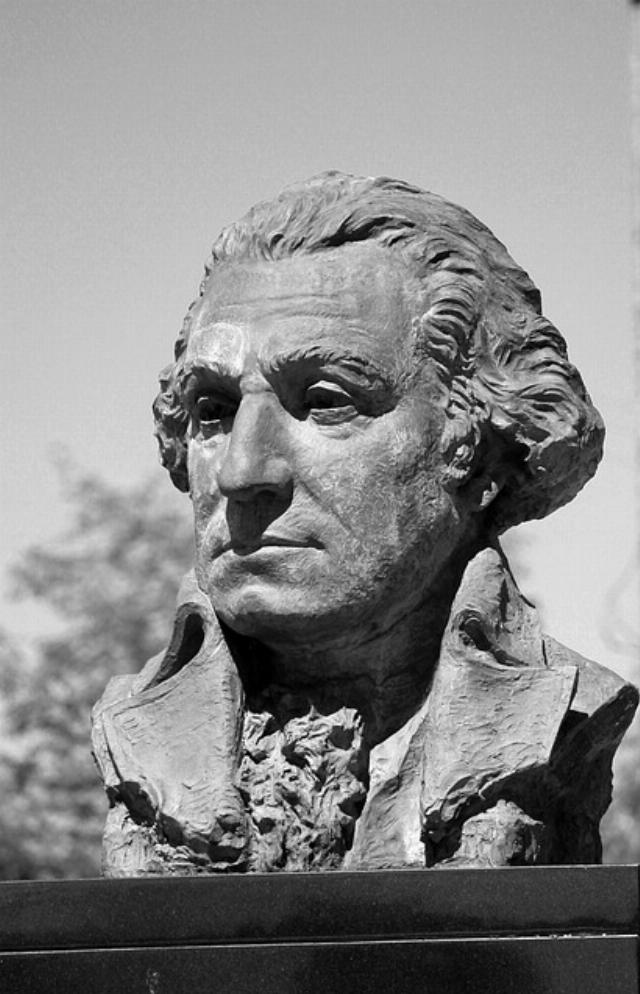The Peril of Modern Entanglements
In 1796, George Washington bequeathed to posterity a prescient admonition: steer clear of “permanent alliances” that could shackle the fledgling republic to the whims of foreign powers. His Farewell Address, burnished by Jefferson’s later flourish—“entangling alliances with none”—was no mere relic of a parochial age. It was a clarion call to safeguard sovereignty, a principle now imperiled by a web of commitments that conservatives must urgently reassess. Today, as America navigates a fractured globe, Washington’s wisdom demands not blind reverence but a bold reimagining—one that honors our founding ethos while confronting the complexities of 2025.
The conservative soul recoils at dependence. Self-reliance, rooted in the rugged individualism of the frontier and the moral clarity of the Constitution, defines our creed. Yet behold the paradox: the United States, champion of liberty, finds itself tethered to a lattice of alliances—military, economic, and cultural—that threaten to erode the very autonomy we extol. NATO binds us to Europe’s defense, trade pacts dictate our markets, and supranational bodies whisper in our policymaking chambers. These are not mere partnerships; they are entanglements, subtle chains forged in the name of progress but forged nonetheless.
Consider NATO, a Cold War artifact now stretched beyond its original mandate. With 31 members as of 2025, it has ballooned into a leviathan, its tendrils reaching into the Baltics and the Black Sea. Conservatives cheered its birth as a bulwark against Soviet tyranny, and rightly so. But what once shielded us now ensnares us. The 2022 Ukraine crisis—still smoldering—drags America into a proxy war with Russia, not out of direct threat but because alliance loyalty demands it. Article 5, a noble pledge, becomes a tripwire: an attack on Estonia or Poland could summon our sons and daughters to die for borders we scarcely comprehend. Washington foresaw this peril—alliances, he warned, could “entangle our peace and prosperity in the toils of European ambition.”
Balance compels acknowledgment: NATO deters aggression, a fact etched in the relative calm of post-1945 Europe. Yet deterrence need not mean entanglement. A conservative vision would reframe it as a coalition of convenience, not a sacred covenant. Why not a tiered structure—core members bearing mutual defense, peripheral ones offering cooperation without compulsion? Such innovation preserves strength while unshackling us from obligations that serve Brussels more than Boise.
Economically, the entanglements deepen. Trade agreements like the defunct Trans-Pacific Partnership—or its successors lurking in 2025’s diplomatic shadows—promise prosperity but deliver servitude. Conservatives laud free markets, yet these pacts often bind us to rules crafted by unelected technocrats, eroding the sovereignty of our legislatures. The World Trade Organization, with its 164 members, adjudicates disputes that can override American law—recall the 2000s steel tariff saga, when WTO rulings forced U.S. concessions. And China, our economic frenemy, exploits these frameworks, flooding markets with subsidized goods while we subsidize their ascent through tangled supply chains. Jefferson’s “commerce with all” never meant ceding control to globalist Mandarins.
A conservative reclamation demands originality: renegotiate or retreat. Bilateral deals, forged with nations sharing our values—think a fortified U.S.-UK pact—could replace sprawling multilateral traps. Tariffs, wielded judiciously, might resurrect domestic industry without sparking trade wars. The goal is not isolation but independence—trade that enriches us, not ensnares us.
Culturally, the entanglement is subtler yet more insidious. The United Nations and its satellites—UNESCO, WHO—peddle ideologies at odds with American principles. In 2024, UNESCO’s push for “global citizenship” curricula infiltrated U.S. schools, diluting the civic education conservatives once cherished. The WHO’s pandemic edicts, still echoing from 2020, clashed with our federalism, pressuring states to bend to Geneva’s will. These are not alliances of steel but of ideas, entangling our minds in a progressive orthodoxy that mocks borders and faith. Washington’s warning resonates: foreign influence corrupts not just policy but identity.
Yet conservatives must not retreat into a hermit’s shell. The world of 2025—pocked by climate crises, cyber threats, and China’s rise—demands engagement. The error lies in permanence, in alliances that ossify into obligations. A nimble America, unbound by rigid pacts, could lead coalitions of the willing—ad hoc, purpose-driven, dissolving when the task is done. Imagine a cyber-defense league with Japan and India, disbanded once the threat wanes, or a climate compact with Canada, free of supranational baggage. This is not isolationism but strategic liberty, a doctrine conservatives can champion without apology.
History buttresses this stance. The 19th century, when America heeded Washington most, saw us thrive—expanding westward, trading globally, yet dodging Europe’s wars. Contrast the 20th, when entanglements birthed Vietnam and Iraq—quagmires costing blood and treasure for scant gain. Today, Afghanistan’s 2021 collapse, after two decades of NATO-linked nation-building, mocks the permanence we embraced. The lesson is stark: alliances must serve us, not rule us.
Critics will cry naïveté. A multipolar world, they argue, requires unbreakable bonds—China and Russia lurk, eager to exploit our withdrawal. Fair enough. But strength lies not in entanglement’s rigidity but in freedom’s agility. A disentangled America, armed with a robust military and a vibrant economy, can deter foes and rally friends without being yoked to their fates. Reagan, our conservative lodestar, grasped this—his alliances were muscular but flexible, his “peace through strength” unbound by foreign vetoes.
Innovation seals the argument. Conservatives can pioneer a “sovereignty doctrine” for 2025: alliances as contracts, not marriages—renewable, revocable, tethered to clear American interests. Exit clauses, sunset provisions, and mutual benefit audits could transform NATO or trade pacts into tools of our will, not masters of our destiny. This honors Washington’s spirit while adapting it to a wired, warming, warring world.
The conservative heart yearns for a nation unshackled—free to chart its course, defend its values, and prosper on its terms. Entangling alliances, in their modern guise, betray that vision, binding us to agendas not our own. Let us reclaim Washington’s counsel, not as dogma but as inspiration, forging a path that marries principle with pragmatism. The hour is late, the stakes eternal. America must beware—and act.

Image: Free image, Pixabay license.





